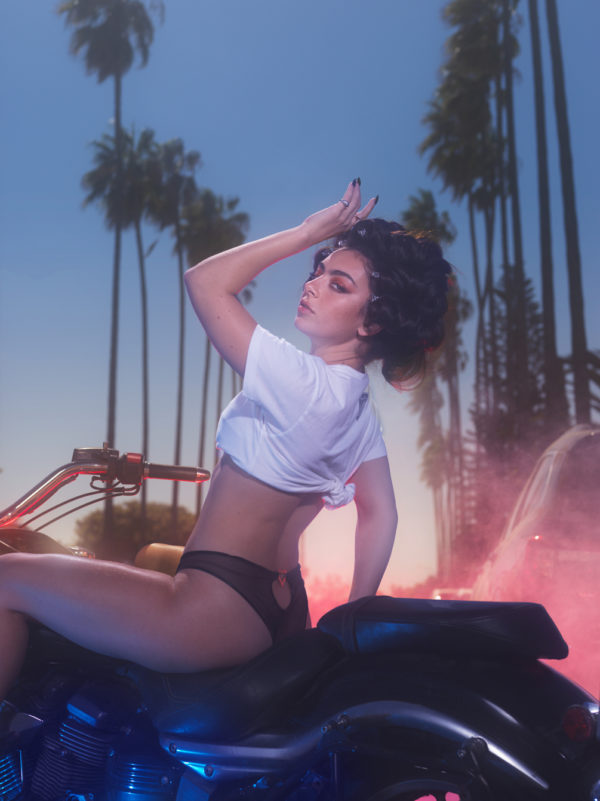
PHOTOGRAPHY BY MATT GRUBB | STYLING BY CHRIS HORAN
Charli XCX
Charli XCX has always had a plan. It’s been that way ever since she started making music in her bedroom in Essex, England as a young teen. At 15 she convinced her parents to loan her money to record her songs in a professional studio. They also chaperoned her to illegal warehouse parties where she would perform her music to zonked out ravers, often not heading home until sunrise. When she was signed to a major record label at 16, one of the first things she did was pay back the money she’d borrowed from her parents.
Five albums later — her newest, titled Crash, is the last in her record deal — and she’s still calling all the shots. Charli XCX has deconstructed the female pop star and reconstructed her with only the parts she most likes. She’s gone through many iterations, her most recent is the sexed-up bombshell who knows she’s hot and isn’t afraid to flaunt it. After speaking with some of her fans, it’s clear that one of the most compelling things about Charli is her vulnerability. She’s long been vocal about the ups and downs of pop stardom. In 2020 she shared her struggles with anxiety in a documentary that chronicled her writing and recording an album in only five weeks during lockdown. In our conversation she credits that experience, and starting therapy, for her newfound confidence in embracing her body and sexual energy.
We photographed the 29-year-old pop star one early fall day at the Tom of Finland Foundation in Los Angeles’ Victor Heights neighborhood. It’s safe to say Charli understood the assignment — she embodied the home’s history and energy like a champ. Finding motorbikes, dungeons, and phallic imagery at every turn, we made the most of the iconic location.
How are you feeling now? Very good. I’m feeling good. I just got off the plane, so I’m feeling a bit tired, but I feel alive. I feel like I’m living life as the ultimate Charli.
How was your trip to New York? I did [Jimmy] Fallon yesterday. I’d been out in New York for a minute, like ten days, for fashion week. So, I’ve been very New York-centric and now I’m really happy to be back in L.A. because I’m mixing the album. I’m actually supposed to hand it in tomorrow, but we’ll see if that happens.
Are you close? Yeah, everything sort of comes together at the very last minute. I like working in a very hectic, time-pressured bubble. I think it just helps to make spontaneous decisions, which I think can then be heard in the music and seen in the fonts and artwork. I like it when things feel like you could see me making the decision rather than seeming too over-thought. It keeps things fresh.
When you were creating your 2014 album Sucker, you locked yourself away in a Swedish studio, and then last year you gave yourself a deadline of five weeks to create and record your album How I’m Feeling Now. It feels like pressure-induced spontaneity is a theme in your creative process. The album from last year was very much an extreme of that theme. Five weeks to make all the songs and videos and artwork and promote it and mix it and master it and release it, is quite a lot. I do definitely like time pressure just because I think it makes for really interesting decisions and immediate decisions. And my most favorite thing about pop music and pop marketing campaigns are their immediacy — how they hit you straight away, like a punch in the face. I’ve always enjoyed making decisions like that — I think it helps me make better music.
Have you learned to enjoy doing nothing yet? Not really. I’m definitely better at it than before. But I wouldn’t be myself without creating and making music and being in the studio. I’d be empty and hollow. So, you know, even though I am addicted to what I do, and it borderlines on unhealthy, I feel like I should just be doing what makes me feel alive, and what makes me feel alive is making music and partying and then going back and making music about the parties, and then, you know, creating photographs and then doing more partying — like that cycle, it just builds a lot of inspiration for me.
When I stop, I’m like, what does this bring me? I don’t quite know. If you asked me six months ago, I would have said I’m really enjoying doing nothing. But I think I was just saying that because I felt like I had to be good at doing nothing at that point because I was doing nothing, you know?
Watching your documentary last year about the making of How I’m Feeling Now, it seemed as if maybe 2020 was the first time in your life that you were forced to slow down. From an early age you have been the main generator of your creative output. I’m definitely the generator, but you know, I don’t take my collaborators for granted and they elevate me just as I elevate them. In some cases I work with collaborators who are very much like me in the sense that they are self-starters who don’t stop — like A.G. Cook [the producer who heads PC Music] is one of those people. He is on and creating all the time and doesn’t stop, but, like, we’re on the same page, you know? I’ve always been independent and maybe it’s an only-child thing but there’s this need to prove yourself and to prove your independence too. I was born with that and also this desire to escape it. And then when I ended up in the major label system, there was also a desire to prove myself there as well. Because I think at the time that I signed people just thought I was just some girl with no opinion, which was a narrative for a lot of women at that point. I’ve grown up wanting to do things on my own for many different reasons.
When you were 14 or 15 you asked your parents to loan you money to make an album. I was curious what argument you used to convince them that that would be a good idea? I think I was just like, “this is my passion,” and that was really obvious because I had been making music at home for years before that, so it wasn’t like “mommy, daddy, I want to be a pop star.” It was like, “I want to be able to go into a studio and record these demos that I’ve been writing, practicing, and honing for years. Like this is serious, this isn’t some fuck shit.” And I was very, very lucky that my parents were supportive of me and encouraging of my creativity, because I know that that’s not always the case. And I was also really lucky that they were in a place where they could loan me the money to rent a studio for five days. And by the way, the first thing I did when I made any money of my own was pay them back. That was like number one.
How old were you when you paid them back? The second I signed my record deal, which was right before I turned 16.
That’s a pretty fast return on their investment. Yeah, they did good. And it also wasn’t that much money by the way. I think that’s important. Like obviously there’s this eternal fear of being thought of as some kind of spoiled brat and that’s really not what I am. I worked very hard for everything I have on my own account.
I understand that fear. There is this trend on TikToK of exposing the self-made pop star. I don’t know if you’ve ever seen any of those. No, tell me what it is.
This guy does this video series where, for example, he talks about how Ed Sheeran has cultivated a false mythology about living on the streets at one point when in reality his family are multimillionaires who funded his initial music career. That sounds fun. I mean, it doesn’t scare me because I’ve been very honest about, you know, my beginnings. But yeah, that series sounds really good.
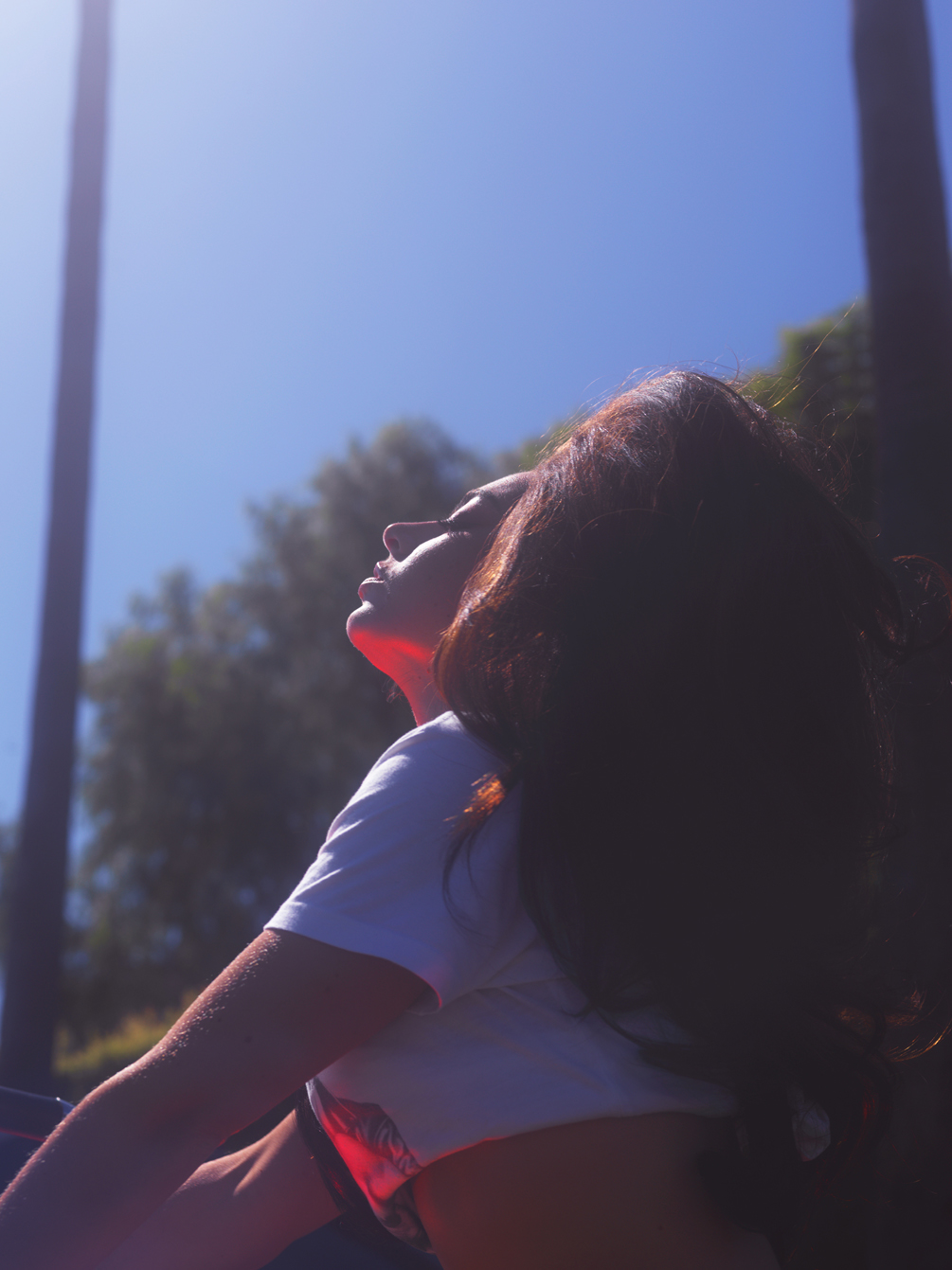
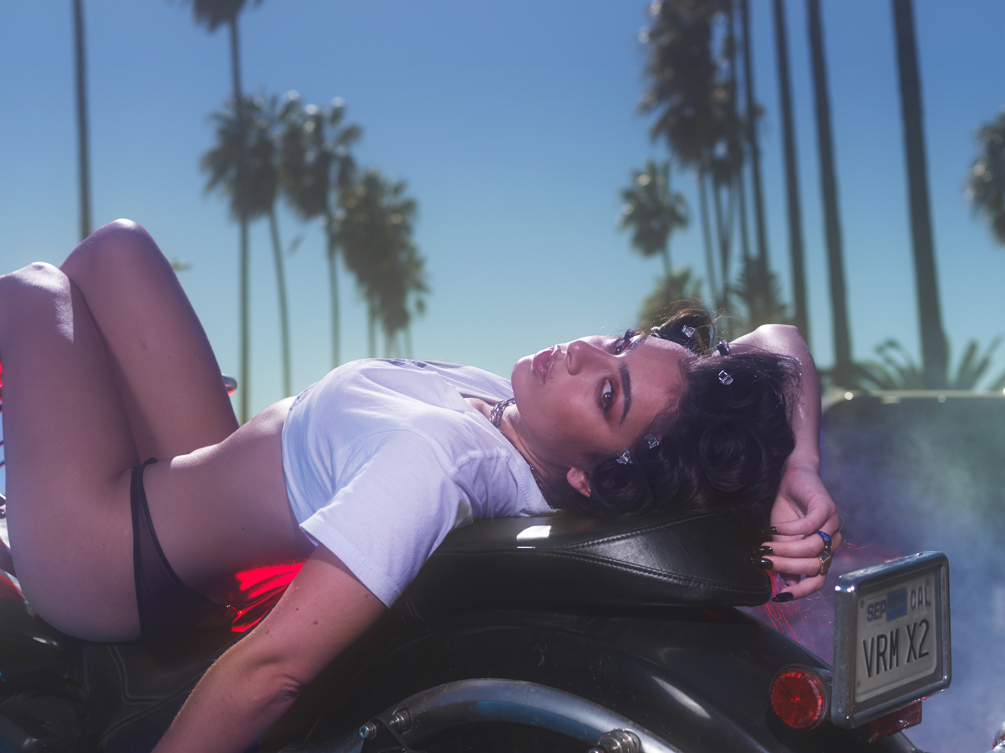
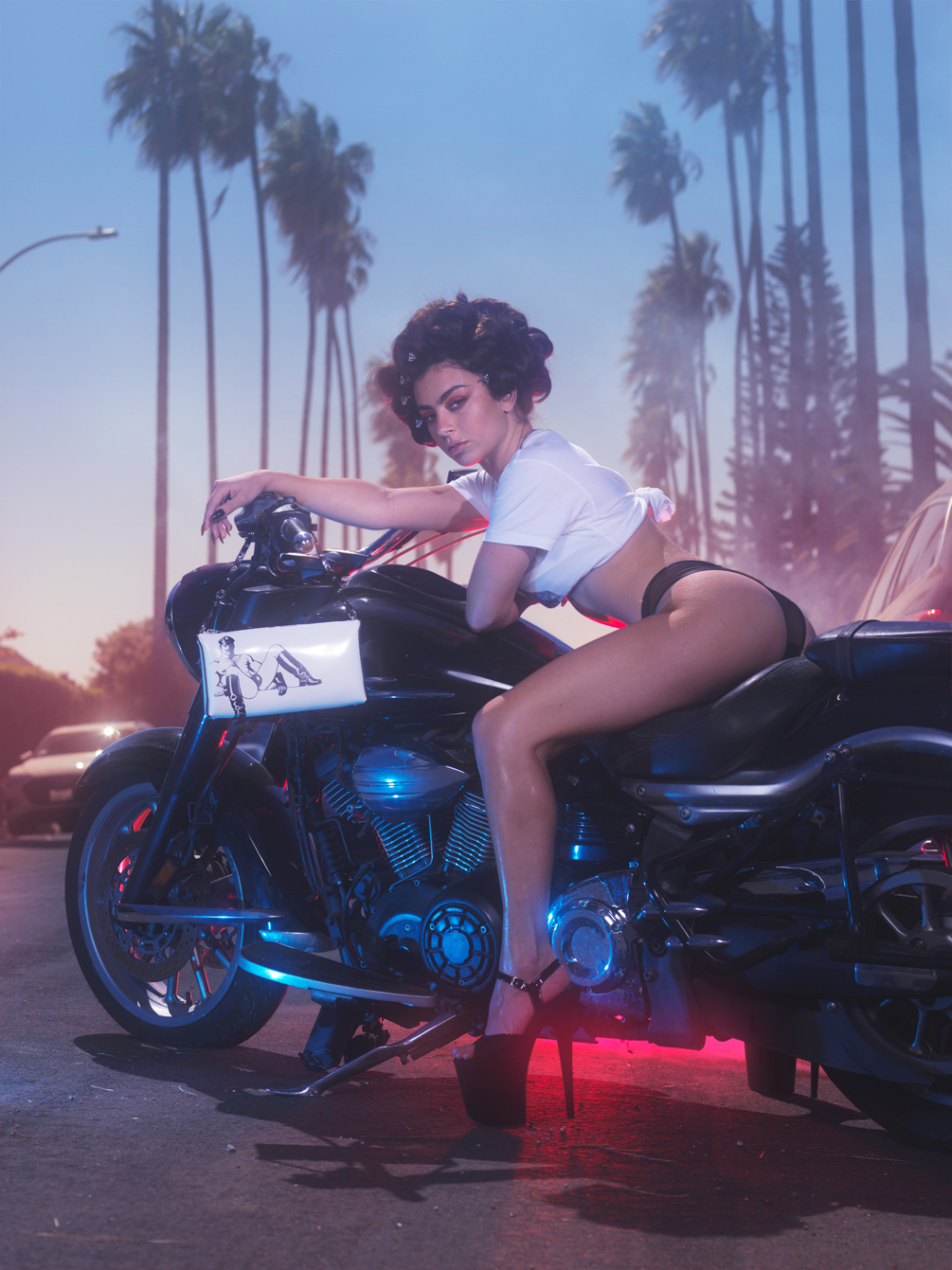 Charli wears bag by Tom of Finland Foundation x JW Anderson, Top by Tom of Finland Foundation, Panties by Honey Birdette, Necklace by Melinda Maria, Rings by Melinda Maria and Dru, Shoes by Pleaser.
Charli wears bag by Tom of Finland Foundation x JW Anderson, Top by Tom of Finland Foundation, Panties by Honey Birdette, Necklace by Melinda Maria, Rings by Melinda Maria and Dru, Shoes by Pleaser.
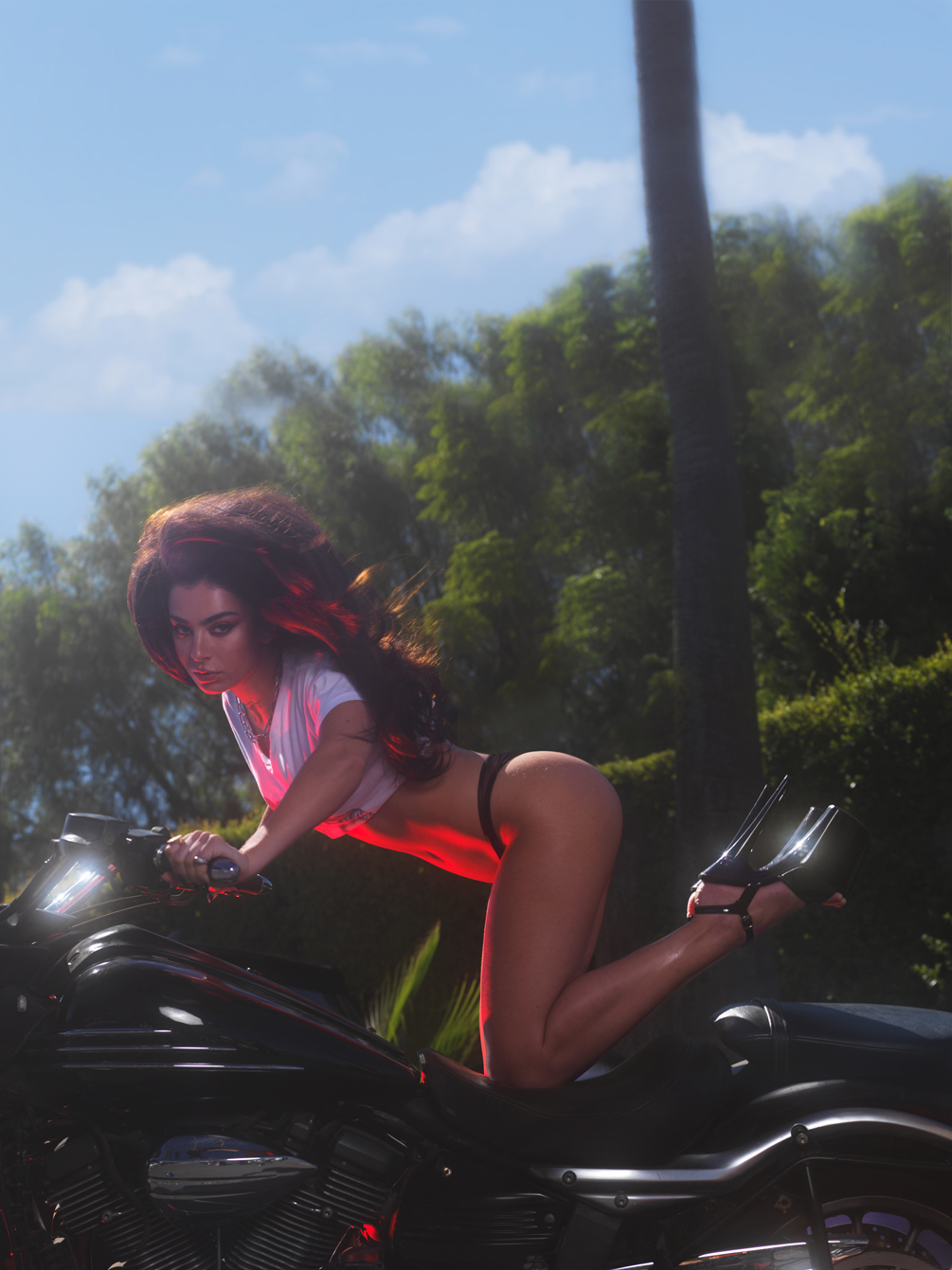
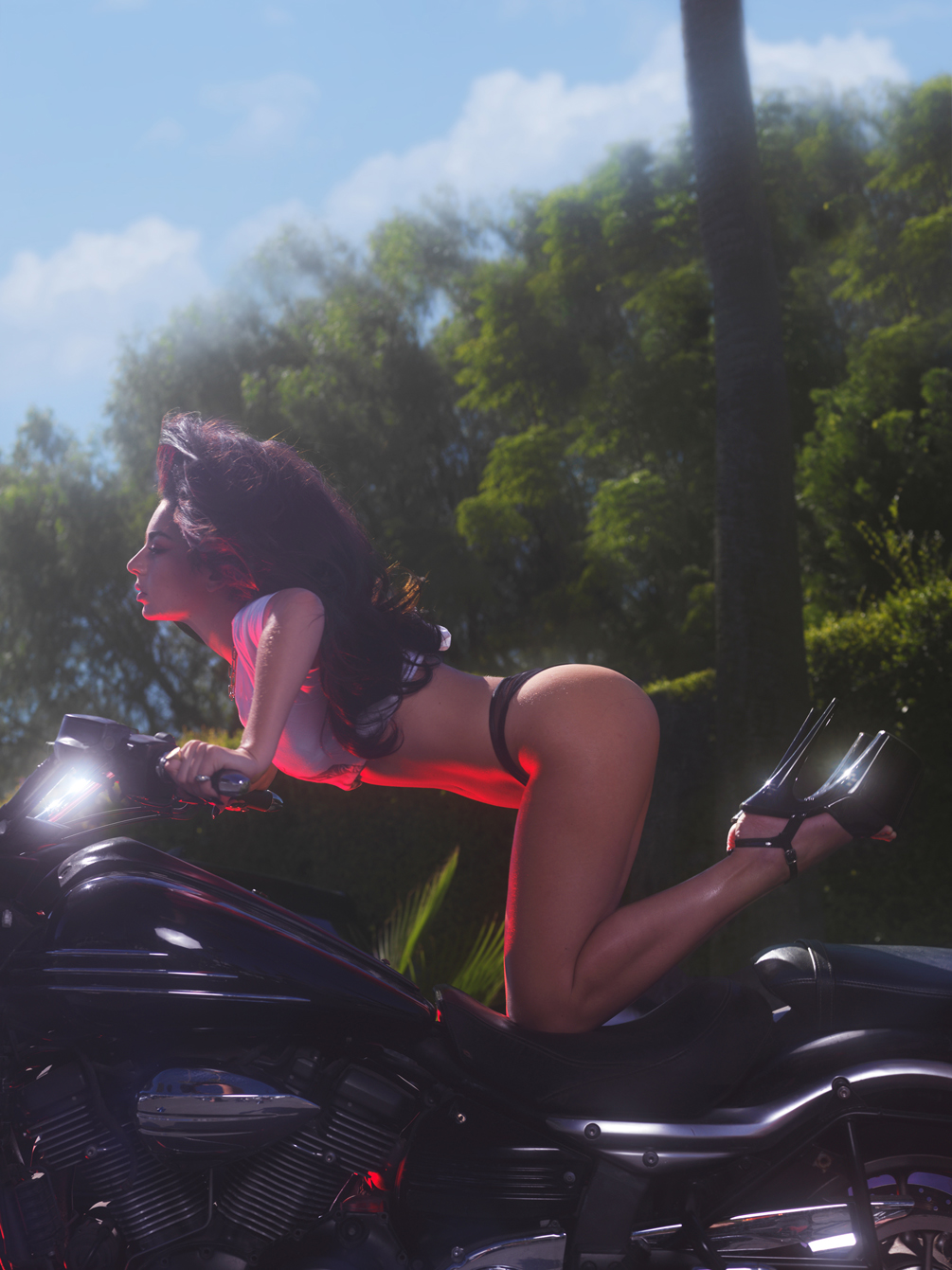
When you were 14 and 15 and you were performing at local raves, how did you manage to get into them? Well, they were illegal raves, they weren’t in venues with licenses or anything like that. They were in warehouses, often in Hackney. There was no I.D. at the door, you’d just put money in the bucket and go in. I did also play a couple of more legitimate venues. And there were sometimes issues with me being 16, like I would have to leave right after [I played] and stuff like that.
But the rave thing, my parents would drive me to them and then they would stand in the back, which obviously at the time I was like, “mom, dad, you’re cramping my style,” but now I can see how generous that was of them, because I probably would’ve gotten lost in some real bad shit if they hadn’t have been there. That was how it was, and we would drive home at 6 a.m. after the rave.
Was it terrifying or was it exhilarating to be performing at that age? It was both. It was absolutely terrifying because I was like 14, 15, and all I wanted was to be cool and be liked. And I thought that every single person there was the coolest person in the world. This was like around the time that Skins was a big TV show. I didn’t grow up going to London, you know, and London is this beacon of culture and art and parties and cool people and music. All I wanted was to be a part of something that I couldn’t access where I lived. So it was exhilarating to occasionally get into that world. And also I learned so much about queer culture and so much about art and music and performance. I learned how to perform from all the people who were playing at those raves. I think I’m a really fucking good performer and I don’t think I would be without those other artists and people who I was watching feverously. I learned about club kids and parties and putting together an outfit and making an outfit and all of these things. That part was really exhilarating. I was a sponge, I just soaked everything in. I was just absorbing all of it and making more music and putting stupid clothes on. And then I would go back to, you know, the countryside where none of that shit happened.
Did you feel a sense of accomplishment after performing at those raves? Yeah, of course. I never felt exhausted because I was just running on adrenaline and then I just wanted more and more. I think that’s why I still love parties now, because of course it’s fun to party, but I feel like I learn so many things at parties. Whether it’s about people and social interaction, and my own social interaction, my anxiety and my own psychology. Or whether it’s about fashion and music. It’s where I see and learn most things.
Do you consider yourself an introvert or an extrovert? I think I’m an introvert actually, but I also have some extrovert tendencies. It depends. When I’m on stage performing, I’m an extrovert. I need a party to become an extrovert. I can’t just be extroverted daily without the backdrop of alcohol and whatever else comes with it, which I know sounds a bit dark, but I think that’s common for a lot of people. It’s freeing to me. I do love work, but the one time I truly switch off my brain is when I’m at a party because I’m so overstimulated by other things and I’m so free that I can truly let go and be a little more out of my shell.
Do you think you were born to be famous? Previously I would have said no, I would have said I was born just to make art, and whether people accepted or rejected that art, it wouldn’t really matter. But now I would say yes, because once I allowed that thought into my brain, I realized I am a really good famous person. I’m smart, and I also can play games and troll people without thinking it’s the end of my life if I get in trouble. I can be sexy, and I can be a car crash. I can be funny, and I can be really fucking good as well. So I think I have quite good chemistry for a famous person in 2021.
I think when people with talent can embrace the fame monster then that’s a really powerful combination. But a lot of people who do have talent have talent because they have self doubt. And that sometimes blocks the instinct to dive head first into fame. I think that was me before — not to say I don’t get self doubt anymore. I mean, I am human, even though I’m a fucking super hero, but, you know, I care less about self doubt now than I did before, because I’m just like, “what is there to lose?” Everything I suppose, but you know, whatever.
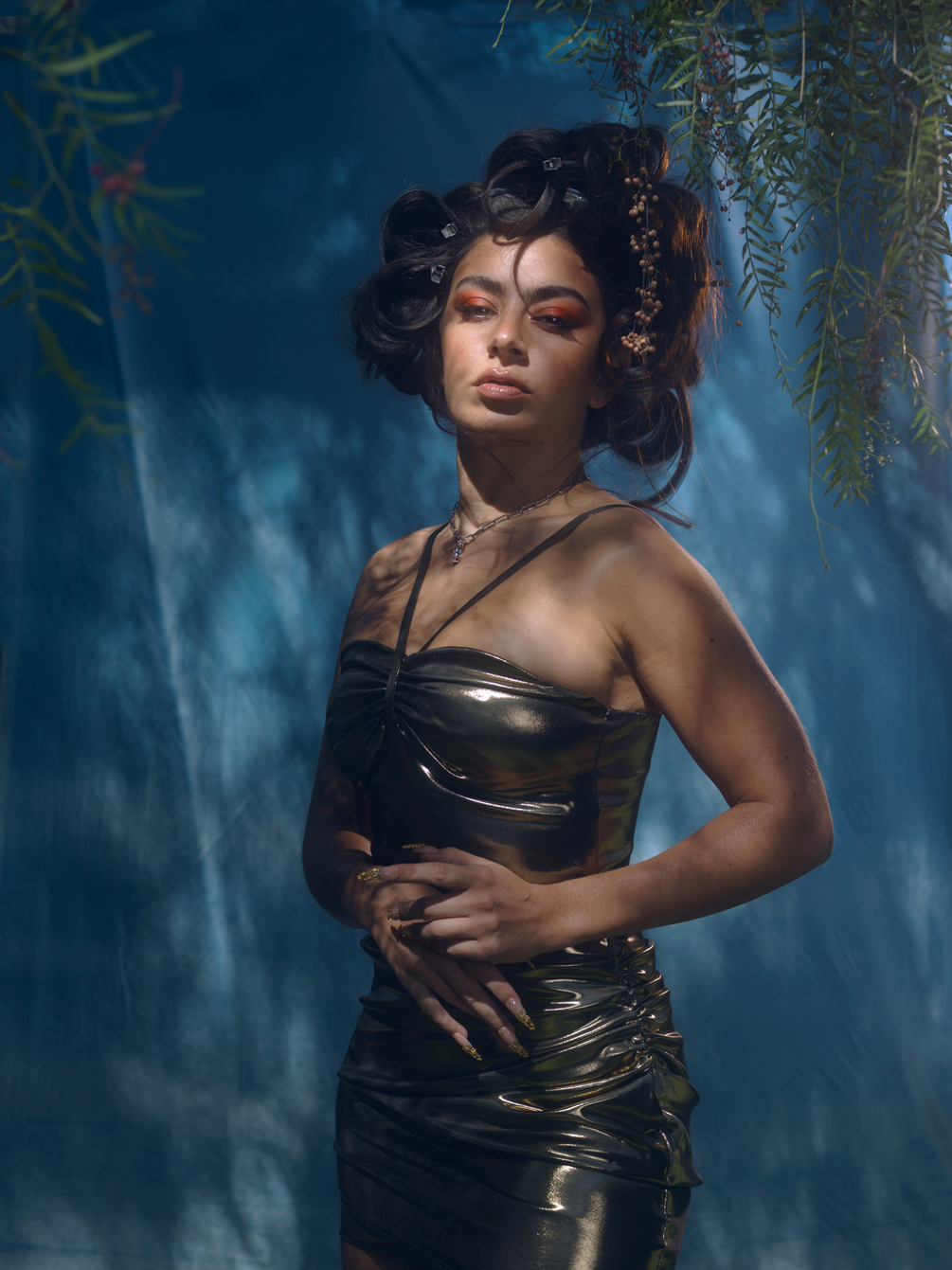 Charli wears dress by Dsquared2 and necklace by Melinda Maria.
Charli wears dress by Dsquared2 and necklace by Melinda Maria.
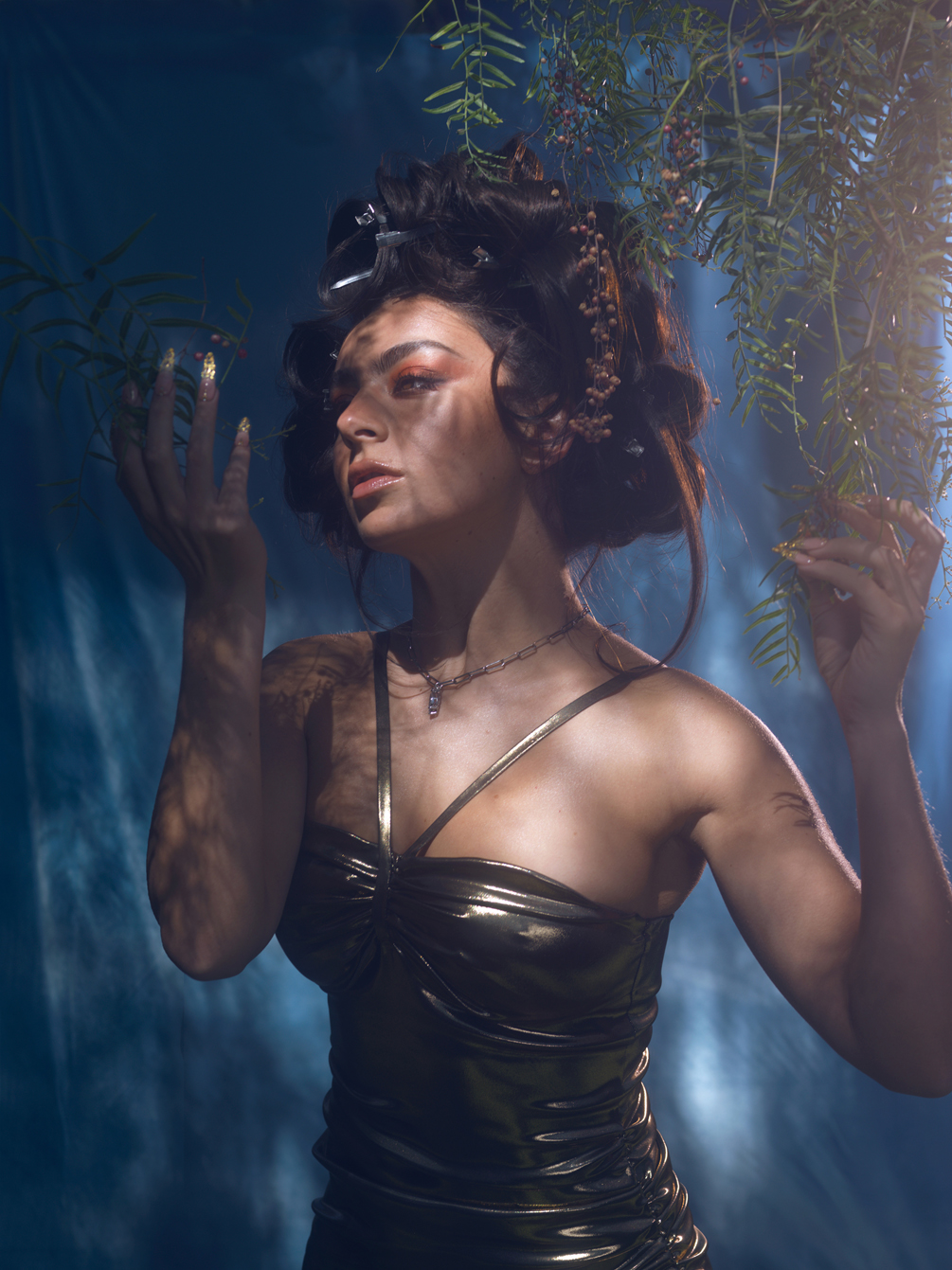
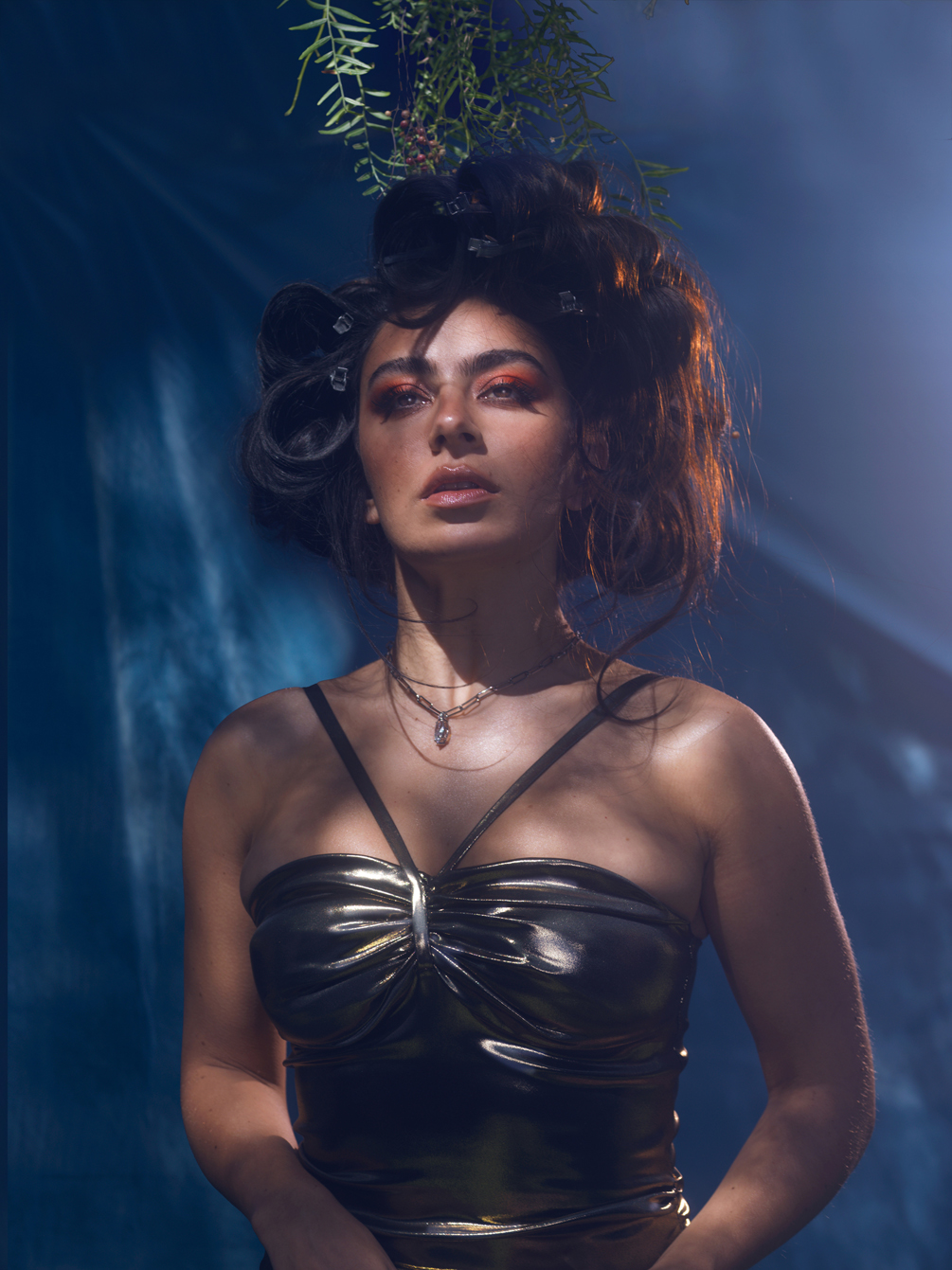
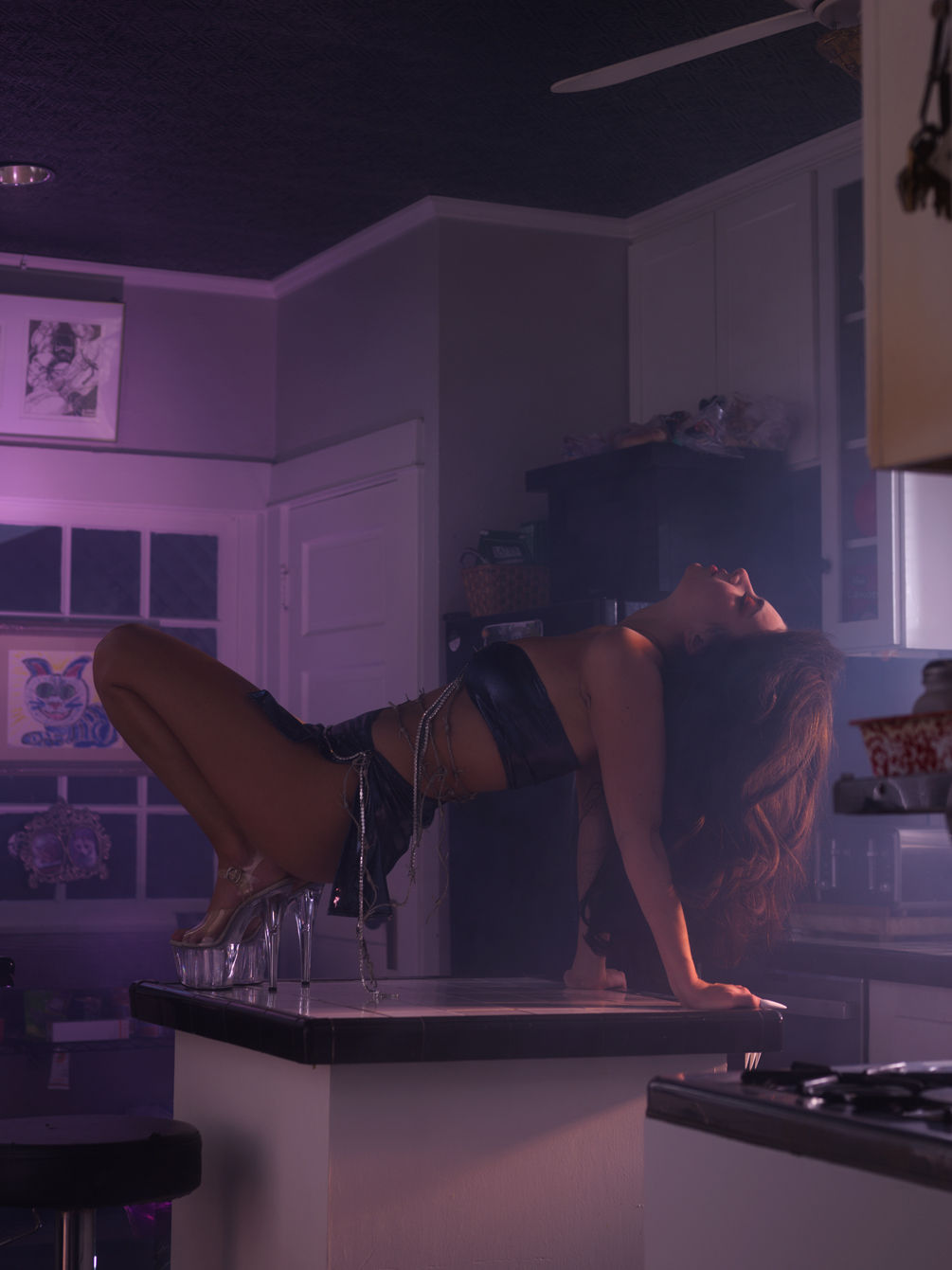 Charli wears skirt set by Yung Reaper and shoes by Pleaser.
Charli wears skirt set by Yung Reaper and shoes by Pleaser.
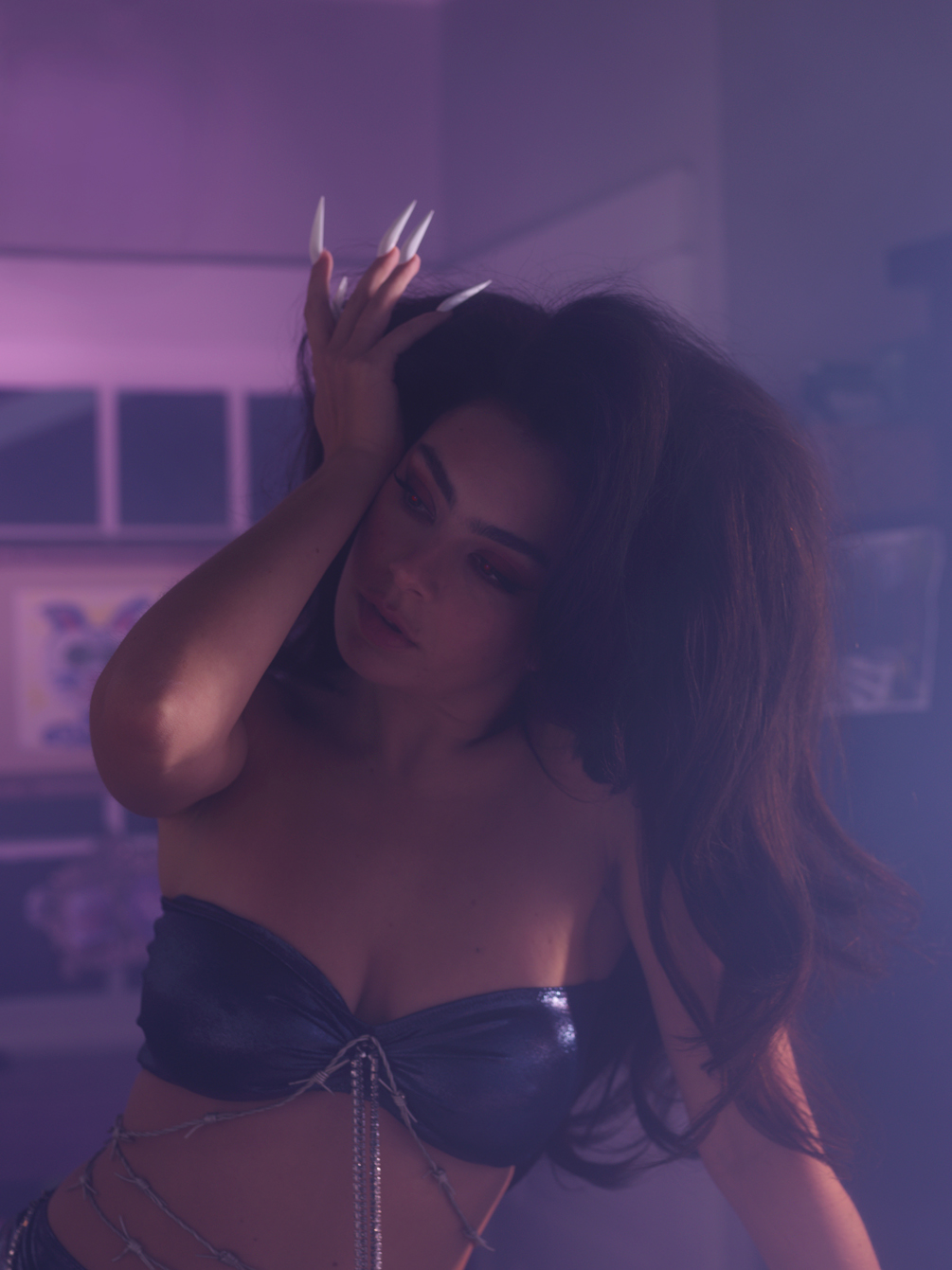
You have been an opening act for pop stars like Taylor Swift and Katy Perry. What did you learn about fame and the machinery of the music industry from either of them? I’m very conscious of how this is going to be written, because I’ve said the wrong thing before. I wouldn’t say I learned that much from Taylor because I already knew that she was incredibly hard working and very smart, and same with Katy, the same with any artist who is at that level of success. It never surprises me to find out, “oh, this person is like very fucking on their shit.” I would never, ever think for a second that someone who makes music at that level and has a career of that size is anything other than fucking intelligent and hard working. It just doesn’t happen. And if it does happen, it doesn’t happen for very long, you know? I don’t want to really learn from anyone how to be famous because I don’t think I’m like anybody else. I think that entertaining artists and celebrities do things completely on their own terms and they make their own mistakes. So I try not to learn too much from other artists. I don’t listen to that many other people’s music.
It’s distracting for my brain and my own vision, if that makes sense. I’m not saying that there aren’t things to learn from these other people. I’m sure there’s a lot to learn actually, but I’m very stubborn. And I also think that that’s a part of being a good artist.
I’ve always known that I’ve wanted to play stadiums but I also know that I don’t exclusively want to make music that will help me do that. I wanna make Vroom Vroom and Pop Two as well as Boom Clap and Good Ones. When I was on tour with Katy and Taylor and, you know, other people like that, of course I was extremely inspired by the scale of everything that was happening and the amount of people who would show up and sing every single word of their songs every single night for months on end. Of course I want that, but I want it on my own terms. And those terms are that I can’t disregard this stranger part of myself that does alienate some people. I’m disregarding part of it now because it’s what feels inspiring to me, but I don’t doubt that in the future I’ll come back to it because that’s the internal fight that I’ve always had from day one. It’s the fight that I have with myself. It’s the fight I have with my label. It’s the fight that I have with my music. I’m like, “should I just be a songwriter or should I be an artist?” It’s the constant struggle. The narrative of me in the press is like, “oh, she does both.” Like, “she will always be an underdog because she marches to the beat of her own fucking drum.” That’s so embedded in my past that sometimes it’s hard for me to ignore it, but I think recently I’ve been doing quite a good job of just ignoring it. You know, the whole “what have I got to lose” thing? I could disregard this stranger side of myself and fully commit to being totally pop. Going on tour with Taylor and Katy showed me that they fully believe in that dream for themselves. It’s quite amazing to watch, and I believe in it for myself now too. But, you know, I have doubts, always.
That’s how you grow as a human by having doubts, that’s how you learn. In terms of this new iteration of your career with your new album and the Good Ones music video, which is amazing by the way, I’m just curious, what led to this new sexed-up version of yourself? Well, I think because the previous album had been so DIY in its ethos and the way it was made, I had to just do the opposite. I’d been edging towards it for a while, and it was just time. Covid amplified that for me even more. I made this album in quarantine in this very specific timeframe that probably, hopefully will never be recreated again.
And now we’re kind of coming out of that moment and people are looking for things that look glam and feel aspirational. Then also there’s this narrative at the moment of artists needing to be very real and I want to not be that. It’s about playing off of what people expect versus what they don’t and giving them a bit of both, if that makes sense.
It’s a much more sexualized and commodified image of yourself, but it seems very self-aware. I know you have a strong relationship with your fans and that they’re a big part of your creative process. Is this something that you signaled to them early on? I was definitely teasing some things. But the reason it’s more sexy and sexualized is actually just really simple — I feel sexier than ever before. I always really struggled with my image, the way I look, my body, and how I was perceived. I always felt too ugly to be a pop star because I would look at these other people and be like, “I don’t look like that. My face isn’t like that.” I started therapy during the pandemic, and that really helped. I was like, “wait, actually, I’m really hot.” I think everyone has that realization at some point, hopefully, where they are like “wait, maybe I don’t look like everybody else, or I don’t dress like everyone else, but I actually like myself for once.” I just started feeling that, and then that bled into my music and the visuals. You know, people say to you sometimes that it doesn’t really matter what someone looks like, it’s about their confidence. And if they’re really confident, that makes you think that they’re really attractive, even if they’re not stereotypically so. I always believed that when I thought about other people, but never really when I thought about myself. And now I feel confident. I feel hot.
Love that. That’s a good headline: “I’m really hot.”
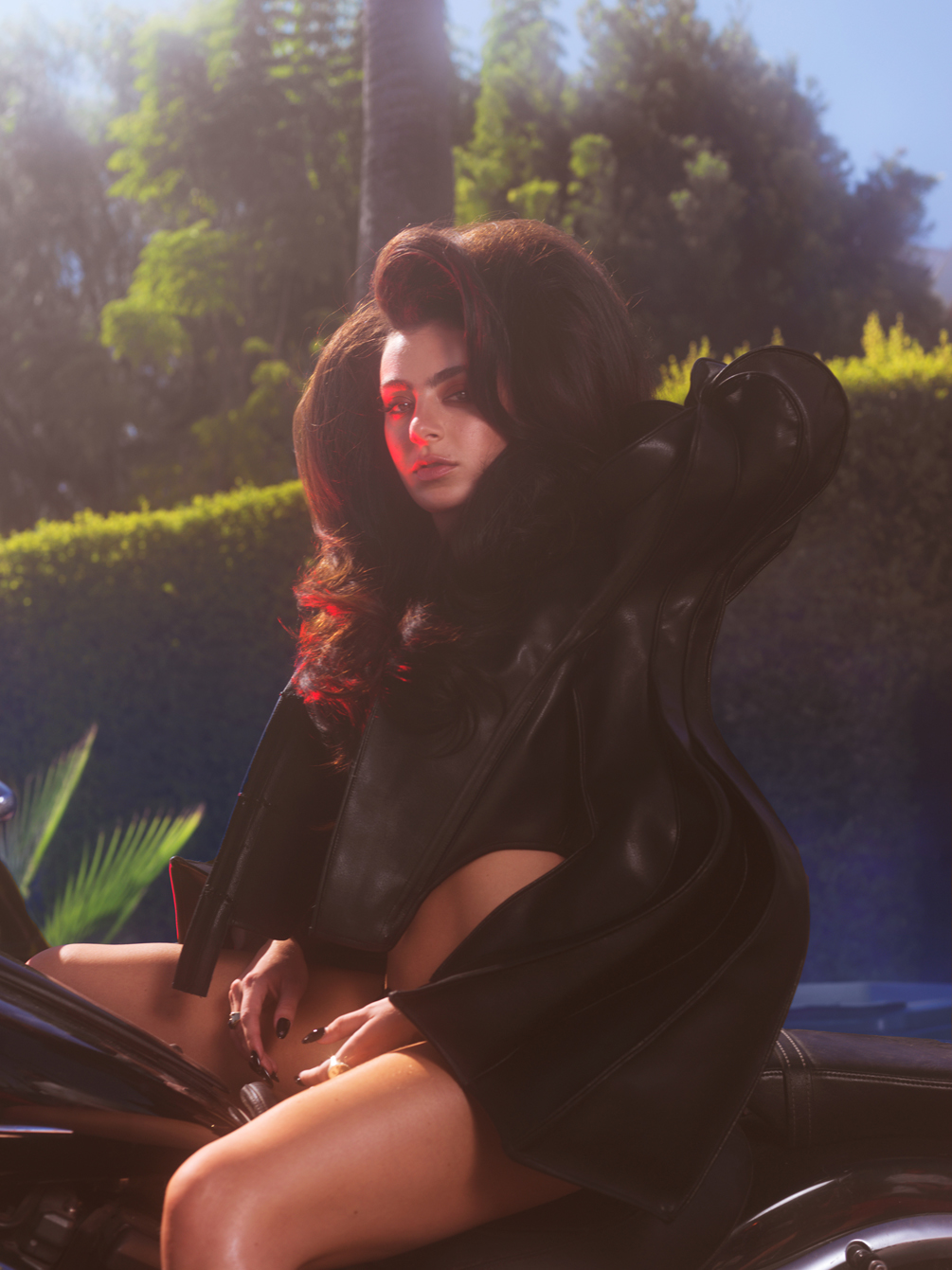 Charli wears jacket by Andrea Brocca.
Charli wears jacket by Andrea Brocca.
I read that this new phase was you embracing the idea of selling your soul. What does it feel like to sell your soul? It feels amazing. I sold it for a good amount and I feel like I’m getting a good return. So yeah, it feels freeing to sell my soul. I’ve never before loved major labels so much. The darkness of the music industry, I think it feeds me right now. The game of the music industry has never been more appealing to me. And I actually think I’m quite good at playing because I avoided playing for so long. I’d been so cynical and anti it that it just sort of reached a breaking point where I was like, “actually fuck it.” The only thing left to do is just like fucking play the fucking game.
It’s the principle of judo — using your opponent’s own force against them. Yeah. I mean, I don’t do judo, but I like that. It’s exactly that.
This is your last album with your label. When this is over, do you have any idea of what you will do next? I just want a bidding war. I haven’t really thought more than that. I want a public bidding war. Let it be known.
I love a public bidding war. Me too.
Who is your hero in real life? Sophie.
Who’s the most interesting person you’ve met? Sophie. By far. No explanation needed.
You launched a podcast called Best Song Ever. What’s the best song ever? LMFAO, “Sorry for Party Rocking.” That’s my funeral song.
What is the worst song ever? I don’t know if I could say there’s a worst song ever. I have quite a soft spot for songs that are deemed “bad,” guilty pleasures I suppose. I always think one-hit wonders and songs in the guilty-pleasure bracket are so joyous and liberating. Technically I love all bad songs.
Why do you always let the good ones go? Because I love toxic people.
Where would you like to live? Hell.
How would you like to die? Car crash, but one that kills me instantly.
Who was the last person to make you smile? I can’t really say.
Who was the last one to make you mad? I just get mad when people drop the ball, when people don’t match my energy and don’t live up to my expectations — which is super stupid and selfish, no one can live up to what you want them to be, they can only be who they are.
Where are you happiest? I’m happiest when I’m in the studio feeling the rush of writing a great melody and feeling the high from a song I’ve just created. Or alternately at a house party. I always feel really good dancing at a house party.
Who do you want to be when you grow up? Charli XCX.
What color is your new album? It’s metallic blood red.
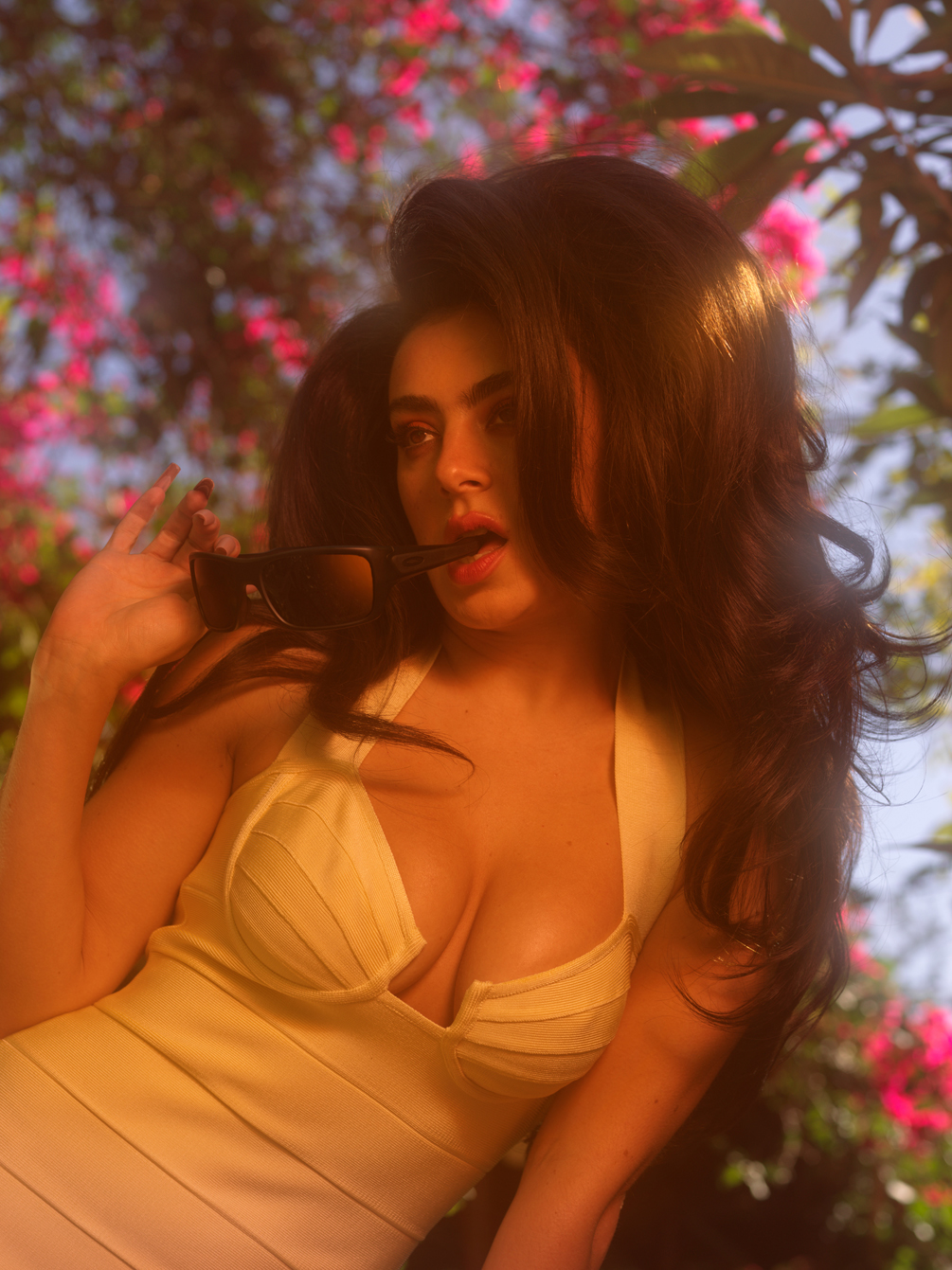
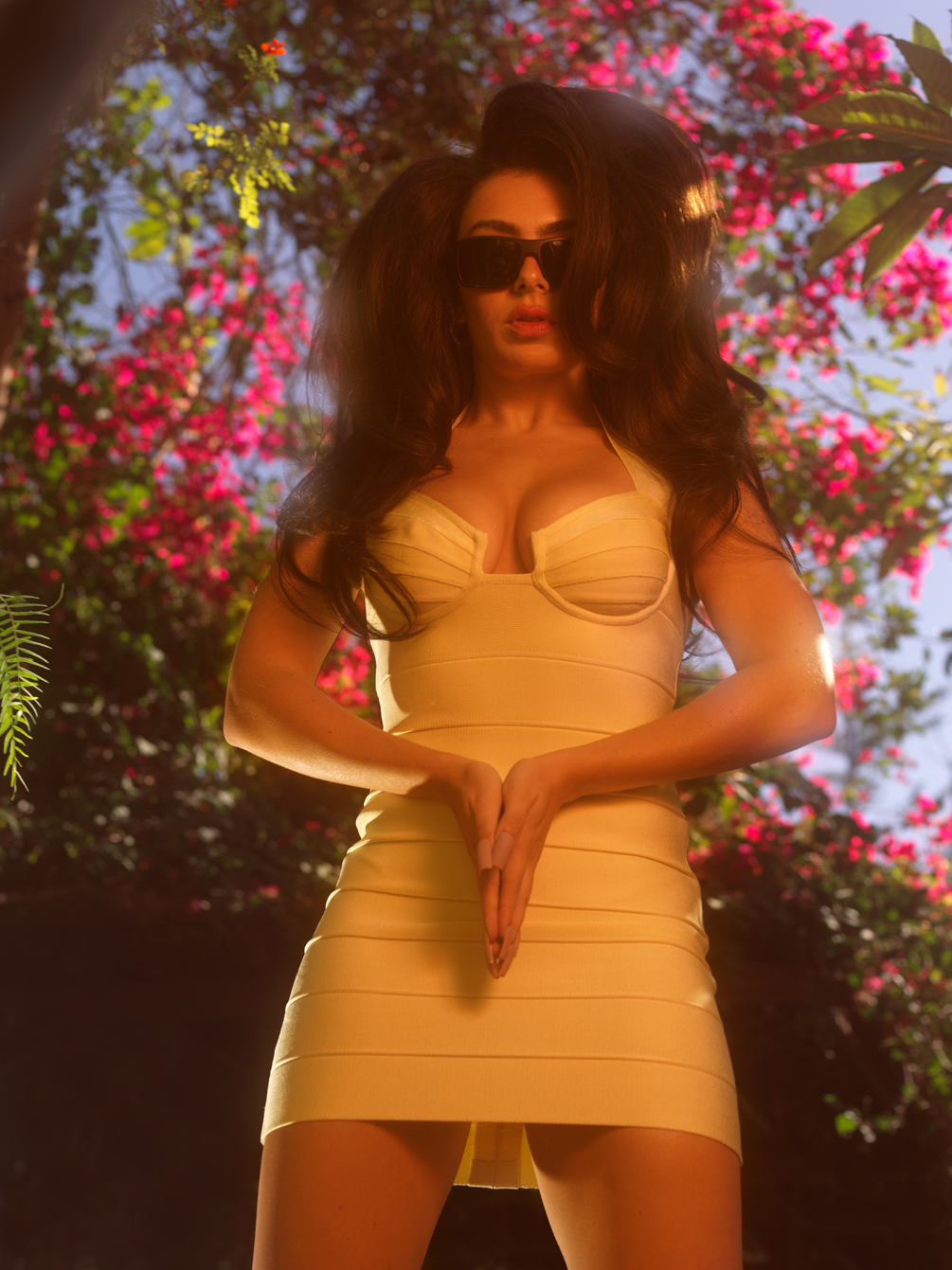
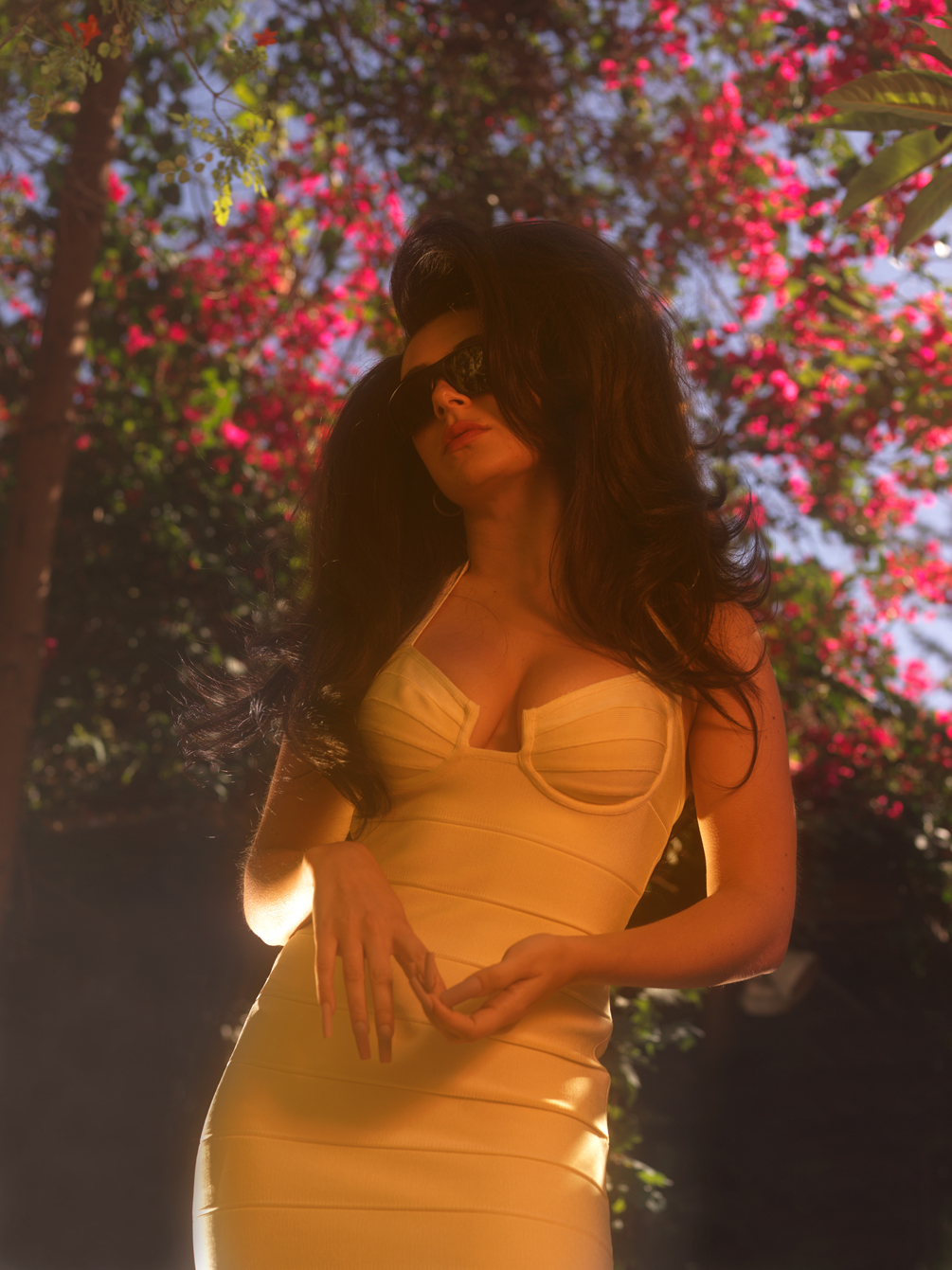 Charli wears dress by Hervé Léger, sunglasses by Oakley and earrings by Melinda Maria.
Charli wears dress by Hervé Léger, sunglasses by Oakley and earrings by Melinda Maria.
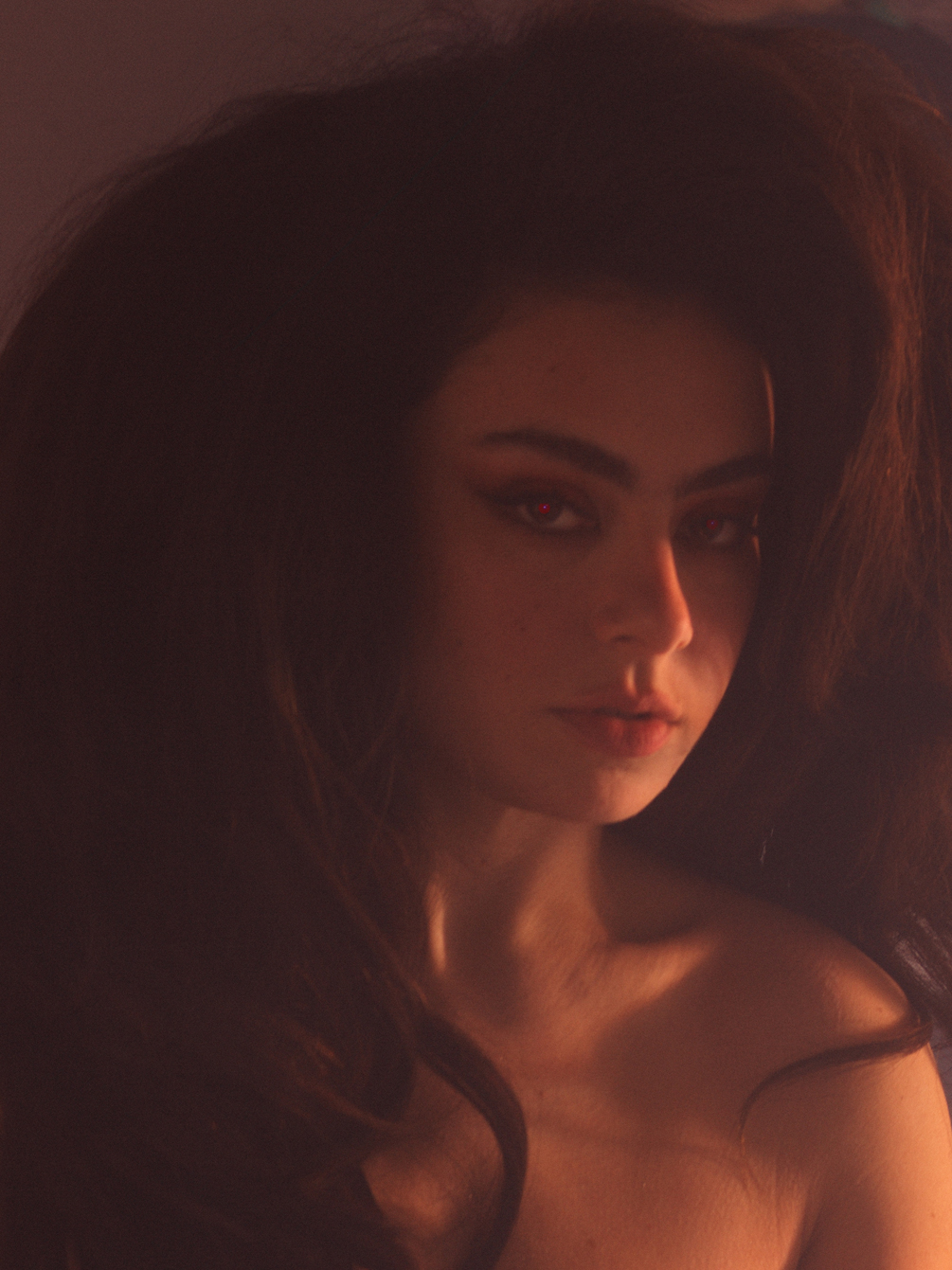
Hair by Sami Knight, Makeup by Lilly Keys, Nails by Britney Tokyo.
This story was printed in GAYLETTER Issue 15, get a copy here.